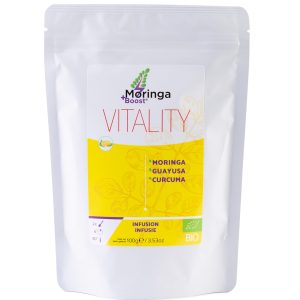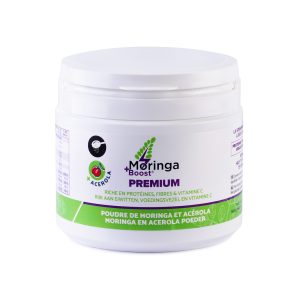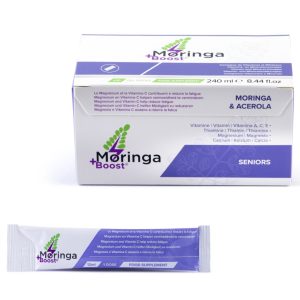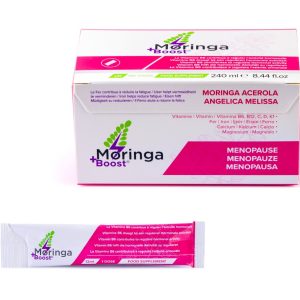Life after 50 is a new adventure in its own right, full of possibilities and opportunities for lasting well-being. Your diet is your most precious asset for making the most of this stage of life, and that’s where herbs and dietary supplements come in.
In this article, we’ll explore the benefits of plants, highlight the health signals that deserve your attention and emphasize the importance of dietary supplements for living a full, vital life.
● Plants, your allies for dazzling health
Foods rich in fiber and antioxidants play an essential role in preventing type 2 diabetes.
1. Antioxidants to revitalize body and mind: Plants are full of antioxidants that are like rays of sunshine for your body. Vitamins C and E, found in citrus fruits and nuts, keep your skin radiant and protect your cells from free radicals. Antioxidants are those shiny little particles that neutralize free radicals, unstable molecules that can damage cells and contribute to premature aging.
2. Antioxidants, such as vitamin C, are found in abundance in citrus fruits like oranges, grapefruits and lemons. They help boost the immune system, protect the skin from ageing and prevent various diseases. What’s more, vitamin E, found in nuts, seeds and olive oil, helps keep skin supple and youthful. A little-known plant in Europe, moringa has been used for millennia in Ayurvedic medicine. Its leaves are packed with antioxidants, vitamins and minerals, and are now available in powder and dietary supplement form. A trail to follow …
3. Omega‑3 for a valiant heart: Omega‑3 fatty acids, found in flax and chia seeds, are your best friends for sparkling heart health. They reduce inflammation, lower cholesterol … and keep you smiling! These essential fatty acids are not only good for your heart, but also for your brain. They promote cognitive function and can help prevent age-related dementia.
Fatty fish such as salmon are an excellent source of essential fatty acids that can help reduce the risk factors associated with heart disease. The essential fatty acids found in oily fish play an important role in the optimal functioning of the nervous system.
4. Flax and chia seeds are a treasure trove of nutrients. They are rich in omega‑3, fiber, protein and antioxidants. You can sprinkle them on your cereals, add them to your smoothies, or incorporate them into your favorite recipes.
5. Fiber for Vitality: Fiber is abundant in plants, supporting carefree digestion. Say goodbye to constipation and welcome healthy digestion. Fiber is your digestive system’s natural sweeper. They help you maintain a healthy digestive system, prevent constipation and play an essential role in weight regulation. A diet rich in fiber plays a crucial role in regulating blood pressure and cholesterol levels.
Vegetables, fruit, legumes (such as beans and lentils), wholegrain cereals and moringa powder are fantastic sources of fibre. To stay fit and active after 50, it’s crucial to maintain a healthy digestive system, and fiber is an essential key to achieving this.
6. Energizing medicinal plants: Turmeric, ginger and cinnamon are natural superheroes. Their anti-inflammatory properties combat joint and muscle pain to keep you active and full of life. Medicinal plants have been used for centuries for their healing powers.
Turmeric, for example, contains curcumin, a compound with anti-inflammatory and antioxidant properties. It can help relieve joint and muscle pain, common among the elderly. After the age of 50, it’s essential to regularly update your diet to include foods rich in trace elements and antioxidants.
Ginger is renowned for its anti-nausea and anti-inflammatory properties. It can also help stimulate blood circulation and relieve muscle pain. Finally, cinnamon is not only a delicious spice, it can also help reduce inflammation, regulate blood sugar and improve heart health.

● Positive signs for health after 50
Stable blood pressure is often a sign of balanced nutritional intake and effective management of risk factors. Blood pressure and cholesterol regulation are key indicators to monitor when evaluating the effectiveness of your diet and nutritional supplements.
The age of maturity is also the age of fulfillment. Here are some of the signs that life is good after 50:
1. Energy to spare: Do you have the energy of a whirlwind? It’s great! This means that your diet is in harmony with your vitality. Energy is one of the most positive signals of health. If you feel energized and ready to take on new challenges every day, you’re on the right track. A balanced diet, rich in essential nutrients, makes a major contribution.
2. Clear Vision: Is your vision as sharp as ever? Well done! Continue to eat foods rich in vitamins A, C and E, and vegetables high in lutein and zeaxanthin to maintain this clarity. Vision is one of our most precious senses, and visual clarity is a sign of good eye health. To preserve your vision over the long term, eat foods rich in specific vitamins and antioxidants.
Vitamins A, C and E, found in carrots, citrus fruits, walnuts, spinach and moringa, are essential for maintaining eye health. What’s more, the
Lutein and zeaxanthin, found in vegetables such as spinach and corn, protect the retina from damage caused by blue light and free radicals.
3. Flexibility and mobility: Are your joints flexible, allowing you to move freely? Enjoy every movement and maintain that agility with foods rich in calcium and vitamin D. Joints are essential for mobility and quality of life. Preserved flexibility and mobility enable you to stay active, take part in physical activities and enjoy life to the full.
Calcium and vitamin D are key nutrients for maintaining healthy bones and joints. Dairy products, green leafy vegetables, almonds and fatty fish such as salmon are excellent sources of calcium. Vitamin D is produced by the skin when exposed to sunlight, but it can also be found in fortified foods or dietary supplements.
If you’re feeling a little more fragile, for example at the start of winter, you can supplement your diet with MoringaBoost’s IMMUNE SYSTEM capsules, which contain Moringa Oleifera L. powder, Magnesium, Zinc and Vitamin D.
4. Comfortable digestion: Is your belly in harmony with your well-being? Thanks to fiber, probiotics and hydration for smooth digestion. Healthy, comfortable digestion is one of the most positive signs of good health. Digestive problems such as constipation, bloating and abdominal pain can significantly affect quality of life.
Dietary fiber plays an essential role in maintaining healthy digestion. They help regulate intestinal transit, prevent constipation and promote balanced intestinal flora. Vegetables, fruit, legumes and wholegrain cereals are rich in fiber and should be incorporated into your diet to promote comfortable digestion.
What’s more, probiotics, found in foods such as yoghurt and kefir, are beneficial for balancing intestinal flora and improving digestion.
● Food supplements, your shining companions
Fish oil is often recommended as a dietary supplement for its role in reducing stroke and other heart diseases. Nature is your ally, but sometimes a little help is welcome.
MoringaBoost Seniors gel sticks have been designed to help protect the body from premature aging and strengthen the immune system.
It’s important to consult a healthcare professional for personalized management of your nutritional intake, especially if you have pre-existing conditions such as high cholesterol.
1. When should I use them?
Taking MoringaBoost Seniors in gel stick form every day is an excellent way to prevent the side effects of cell aging, reduce the risk of cataracts and boost the body’s energy production, particularly in the brain and muscles.
2. What is its composition?
Based on moringa and acerola, two powerful antioxidants, they have been reinforced with a complex of vitamins and minerals the body needs to stay in shape at any age:
Moringa
- Rich in Protein, Potassium and Vitamin A.
- Contains 48 antioxidants and 20 amino acids, including the 8 essential ones,
- such as Leucine, essential for muscle rebuilding.
Acerola
- Rich in Vitamin C, collagen, gum and cartilage repair function.
- Also contains Vitamin E, Phosphorus, Thiamine, Riboflavin, Pyridoxine as well as Flavonoids, Anthocyanins and Carotenoids.
Magnesium
- Reduces fatigue and maintains electrolyte balance.
Calcium
- Strengthens bones.
Vitamin A
- Preserves visual acuity and strengthens the immune system.
- Antioxidant.
Vitamin B1 (Thiamine)
- Converts carbohydrates into energy and is involved in the functioning of all the body’s muscles.
Vitamin C
- Contributes to a healthy immune system and collagen formation.
- Reduces fatigue.
- Antioxidant.
Vitamin E
- Prevents cardiovascular disease, cancer, Alzheimer’s, Parkinson’s and macular degeneration,
- cataracts and diabetes.
- Relieves arthritis symptoms.
It is always advisable to consult a health professional before introducing any new dietary supplement, especially if the person is already taking medication or has specific health conditions.
● Conclusion: A bright, vital life after 50
Proactive management of your long-term health can make all the difference to your quality of life after 50.
Turning 50 is not the end of a chapter, but the beginning of an exciting new journey. With a balanced diet, rich in plants with radiant powers and dietary supplements to support you, the road ahead looks bright. Every day brings new opportunities to celebrate life and pursue your dreams.
dreams. Remember, a smile is your best asset, and there’s no reason not to shine, because beauty has no age, and every age has its beauty.
Take care of yourself, nourish yourself with positivity and plants, and continue to light up the world after 50! You are a source of inspiration for a healthy, dynamic and radiant life, and the best is yet to come. Make the most of every moment, dance to the rhythm of your own melody and enjoy life at its best. Your future is bright, smiling and radiant!
● References
- Omega‑3 for a valiant heart: Update on Omega‑3 Polyunsaturated Fatty Acids on Cardiovascular Health — PMC — NCBI
- Fibres for Vitality: Long chain omega‑3 fatty acids and cardiovascular disease: a systematic review | British Journal of Nutrition — Cambridge University Press
- Omega‑3 Fatty Acids and Cardiovascular Disease: Effects on Risk Factors, Molecular Pathways, and Clinical Events — ScienceDirect










